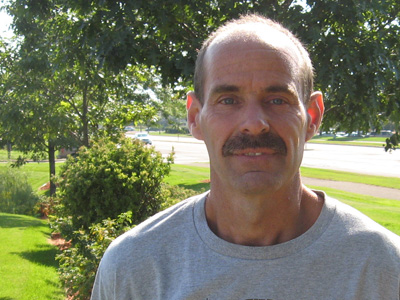
Today’s employers can learn a few things from yesterday’s employees. Rick Miller’s lesson would be a simple one: When the job’s filled, call or e-mail the applicants to let them know.
Miller, 52, of Stillwater, lost his job as a project manager/sales coordinator at a company in Circle Pines in January and he says he hasn’t had a decent interview for a job in months, not since he almost got one in March. He’d survived the first round of interviews and the second one a week later went 2 1/2 hours — on his birthday — with three people and the company’s owner.
“We’ll get back to you on Friday,” he said he was told. But no call came on Friday. He followed up with a phone call on Monday, but it wasn’t returned. Over the next six weeks, he called with the same result. Finally, he gave up.
“How long would it have taken?” he asks. “Nobody has the common courtesy anymore.”
It’s another frustrating aspect of the frustration of the unemployed.
His $430 a week unemployment just ran out, but he considers himself one of the lucky ones. “It would be hard to be positive if you’re the breadwinner,” he says. “I’m lucky in my case. Otherwise, it’d be tough.” His wife is an attorney with her own practice. The couple has some rental property in Hudson, which he has more time to work on. That’s a good thing now that the most recent renters didn’t pay rent for three months, “and left the place a total disaster.”
He also gets up weekdays at 3 a.m. and hits the health club. “I have been on this type of schedule for 20-plus years. A good early-morning workout gets me ready for the day and gives me the energy to keep looking for work and also take on all of the other activities I am involved in.”
But it’s easier being chipper in a bad economy when the weather is good. He says it’s going to be harder when winter comes and there’s not as much around-the-house work to do.
In the meantime, he’ll continue making dinner and networking for leads. He’s tried social networking sites, such as LinkedIn, but he’s not sure it’s working. Still, he says “the mundane task of looking and keeping it all organized” helps keep him motivated. He applies for jobs and keeps track of his contacts. “I check back with them every two weeks and when eight weeks hits, I throw it out,” he says. “If I keep at it, something is going to pay off.”
His advice to those who might become unemployed? Try to negotiate fewer hours. He wishes he had. “See if there’s any way they can keep you on,” he says. “Then you can say, ‘OK, in three months I’ll be out of a job. I’ll start looking now and I can be fussier.'”
He’s not being fussy now. He’s applying for part-time positions. “Most of what’s out there isn’t paying anything,” he says. And the rest aren’t calling back.
(Unemployed? Let me tell your story. Contact me. See other posts in this series. )
Check out the map below to read what people in MPR’s Public Insight Network are telling us about the job climate around them.
